|
Along the Line:
Locomotive Servicing Facilities |
|||||||||||||||||||||||||||||||||||
|
|
|||||||||||||||||||||||||||||||||||
|
Any operating railroad needs some way to service its locomotives. The McCloud River Railroad maintained such facilities adjacent to the roundhouse and diesel shop buildings. |
|||||||||||||||||||||||||||||||||||
|
|
|||||||||||||||||||||||||||||||||||
Steam Fuel, Water, and Sand Facilities 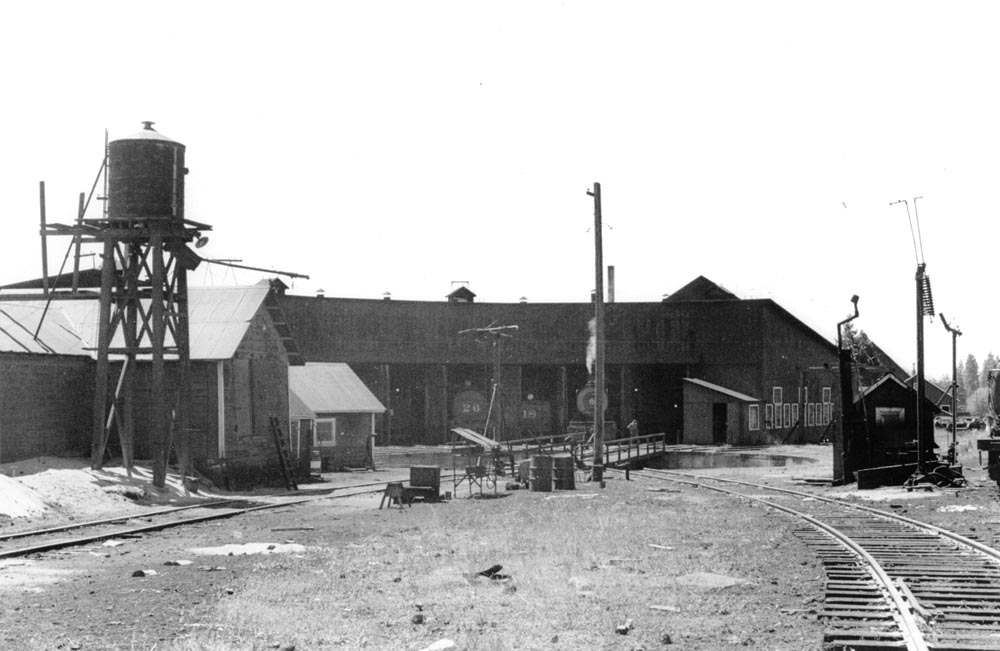 |
|||||||||||||||||||||||||||||||||||
|
Steam sand and fuel facilities are visible in this photograph. At left is the sand house where locomotive sand would be dried, next to it is
the sand tower where sand would be conveyed into waiting locomotives. Fueling stands are next to the track to the right, fed by the large fuel tank located on the hillside above town and supplemented as needed by oil tanks
cars spotted next to the stand pipes. Pacific Northwest Virtual Logging Data Center.
|
|||||||||||||||||||||||||||||||||||
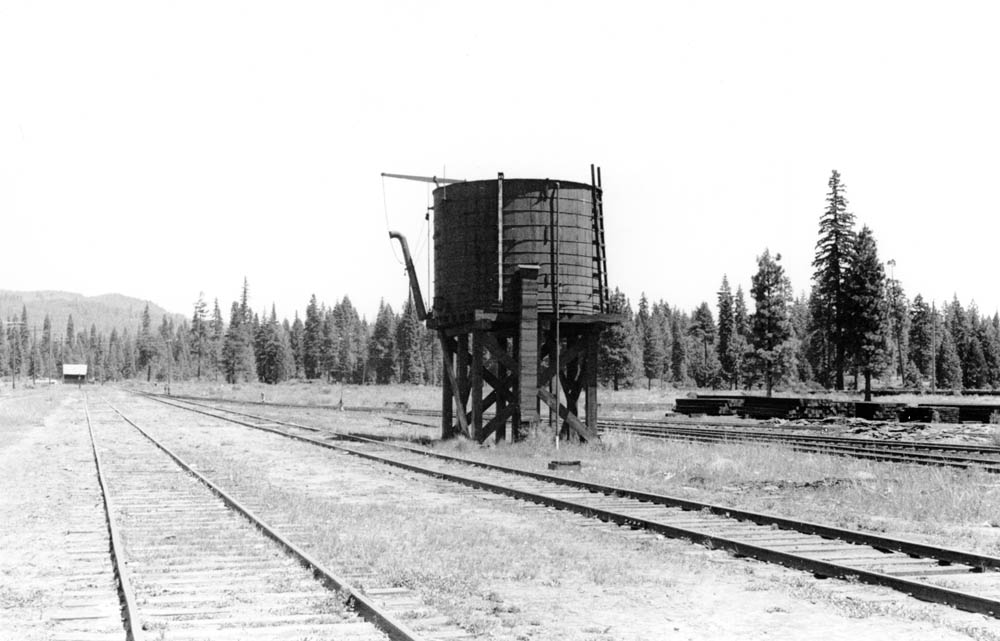 |
|||||||||||||||||||||||||||||||||||
|
The last of the water towers in McCloud. Pacific Northwest Virtual Logging Data Center.
|
|||||||||||||||||||||||||||||||||||
|
|
|||||||||||||||||||||||||||||||||||
Diesel Fuel and Sand Facilities 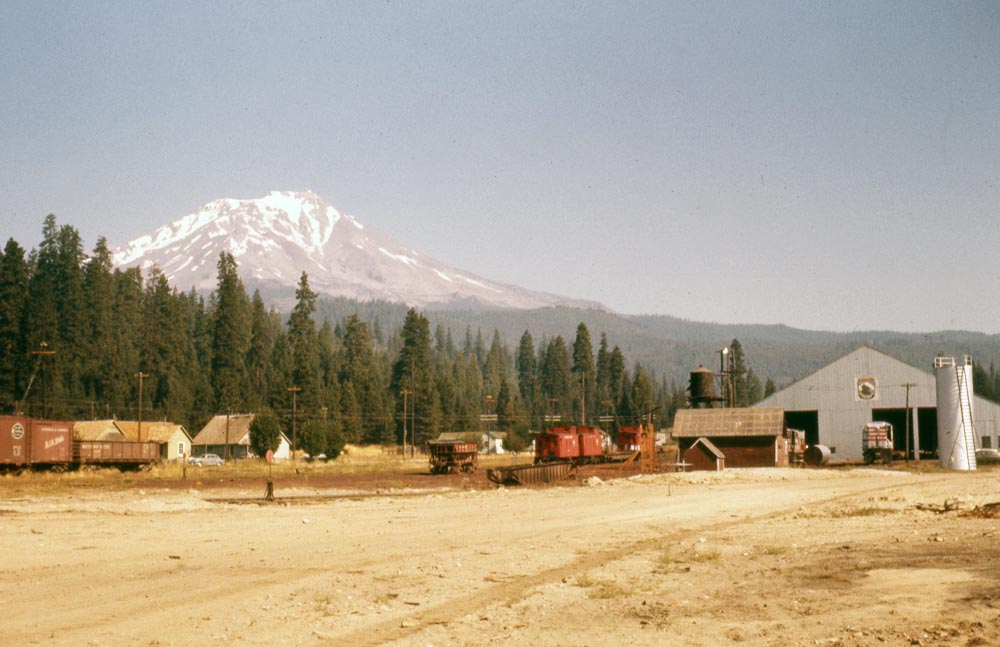 |
|||||||||||||||||||||||||||||||||||
|
Jerry Lamper pulled into McCloud in 1957 to find this scene. The recently demolished roundhouse and machine shop occupied the disturbed
ground in the near part of the scene. The new diesel shop is in the background, with the diesel fuel storage tank just in the frame to the right. The steam era sand house and tower are still in use, and just to
its left are the first parts of the new diesel sanding facilities. Note the turntable sitting next to the sand house.
|
|||||||||||||||||||||||||||||||||||
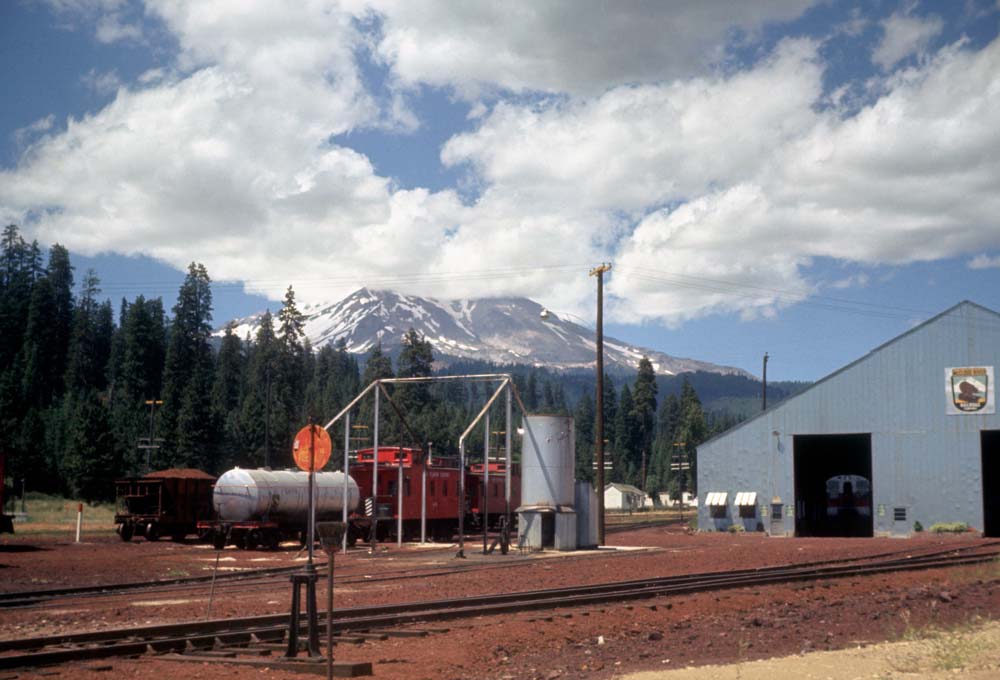 |
|||||||||||||||||||||||||||||||||||
|
The railroad completed the new diesel sand facilities in 1957. Sand arrived in a series of tank cars converted to sand cars and would
be stored in the hopper to the right of the tower. Ed Burggraf
|
|||||||||||||||||||||||||||||||||||
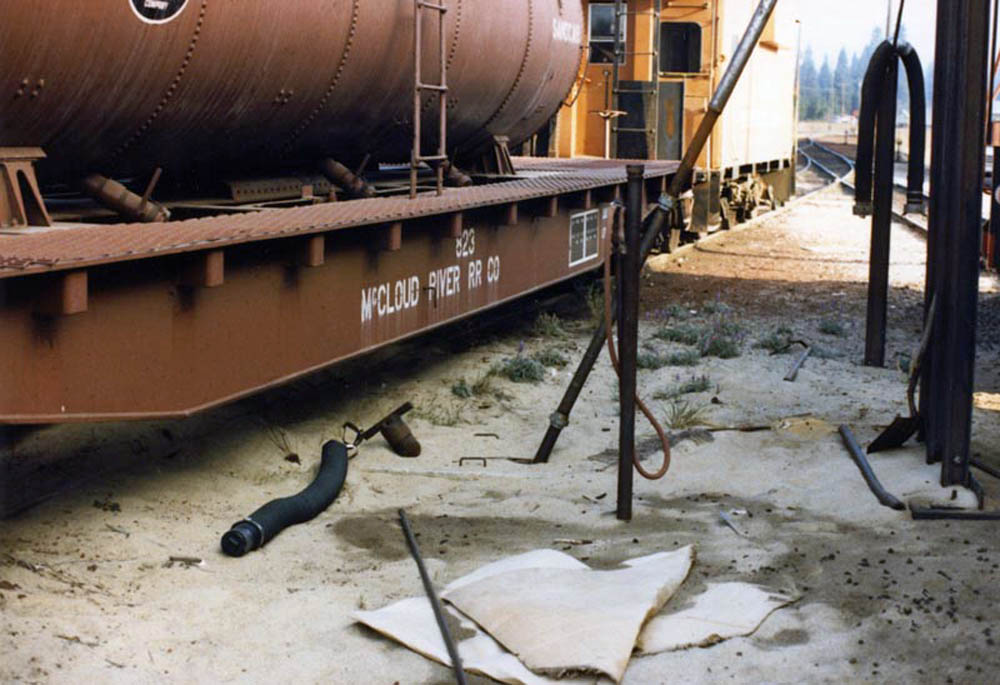 |
|||||||||||||||||||||||||||||||||||
|
Detail shot of the connection between the sand car and sand tower. Pat Driscoll photo, Jeff Moore collection.
|
|||||||||||||||||||||||||||||||||||
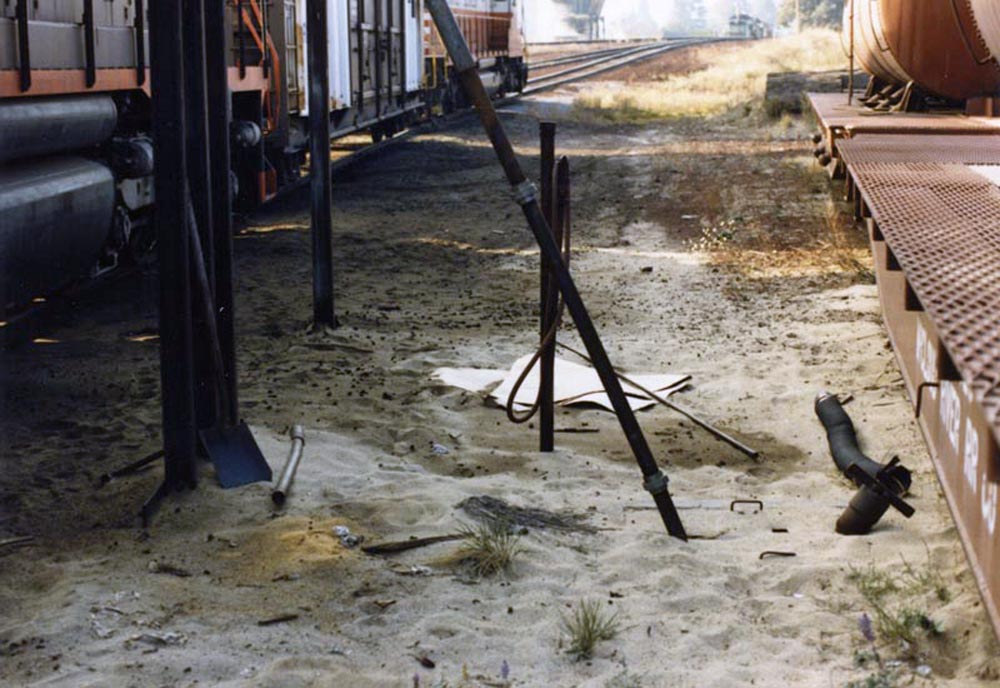 |
|||||||||||||||||||||||||||||||||||
|
Same view as above, but from the other direction. Pat Driscoll photo, Jeff Moore collection.
|
|||||||||||||||||||||||||||||||||||
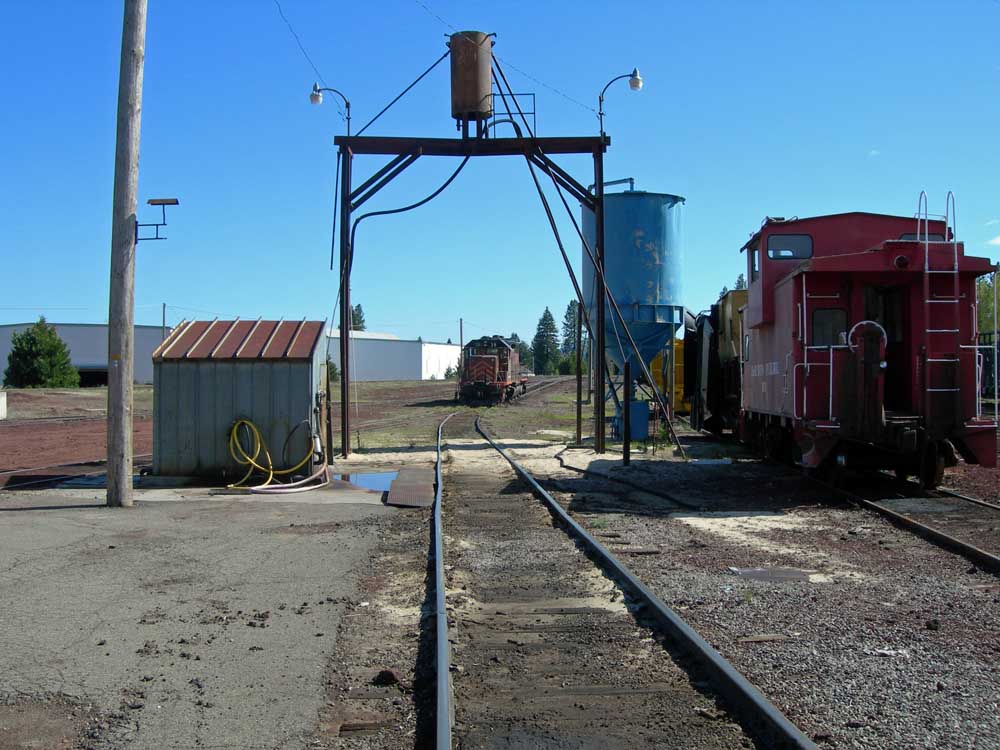 |
|||||||||||||||||||||||||||||||||||
|
The modern sand tower and fueling facilities. The railroad replaced the original diesel sand tower with this tower, constructed mostly
from scrap rails. Shortly after taking over the property the McCloud Railway discontinued using the sand cars and built the blue hopper on the right of the tower, which would be refilled from trucks delivering
sand as needed. The hoses used to refuel the diesel locomotives are on the small fueling shed to the left of the tower. Jeff Moore photo.
|
|||||||||||||||||||||||||||||||||||
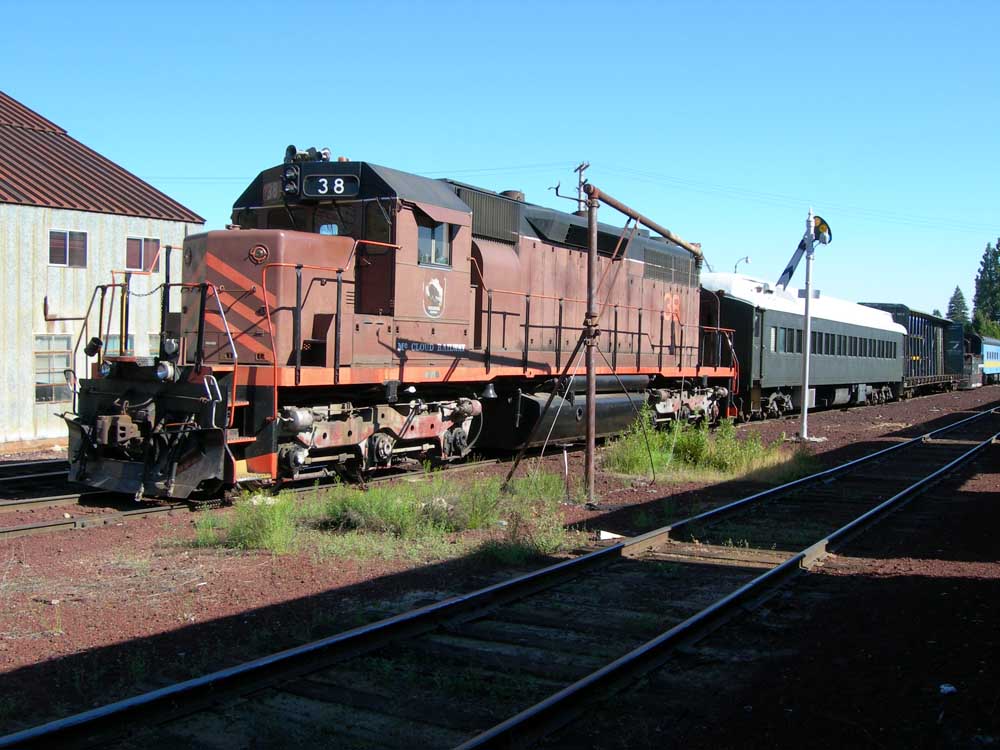 |
|||||||||||||||||||||||||||||||||||
|
The railroad still needed a way to fill fire cars and the #25's tender once the excursion program started, and used this stand
pipe at roughly the location of the water towers to fill that need. Jeff Moore photo.
|
|||||||||||||||||||||||||||||||||||
|
|
|||||||||||||||||||||||||||||||||||
|
|||||||||||||||||||||||||||||||||||